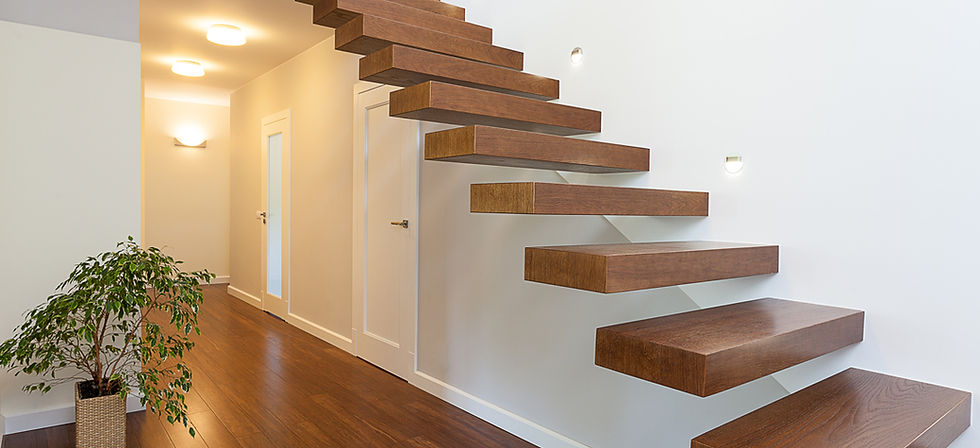
STAIRCASING
Buying more shares is called "Staircasing"
When you are a shared ownership homeowner, you can buy more shares in your home This is known as ‘staircasing’. When you buy more shares, you’ll pay less rent. The amount of rent you pay will be based on the shares you do not yet own.
You can usually buy shares of 10% or more at any time. Some older leases only allow you to buy shares of 25% or more. Some newer leases will allow you to buy shares of 5% or more.
If the home was originally purchased in 2021 or later, you may also be able to buy shares of 1% each year for the first 15 years. Ask your housing association/landlord if this applies to you. You cannot buy shares of 2%, 3% or 4%. you will need to follow the rules below.
Buying shares of 5% or more
You can usually buy additional shares at any time. For some homes though, you might need to wait for a certain amount of time after you buy the home. Check your lease to find out when you can buy additional shares and what shares you can buy.
The cost of your new share will depend on how much your home is worth when you want to buy the share.
When you want to increase your share, you will first need to pay for a valuation by a surveyor who is registered with the Royal Institution of Chartered Surveyors (RICS). This official valuation will determine the price of the share.
The landlord may charge an administration fee each time you buy a share of 5% or more. It’s set by the landlord and can vary from around £150 to around £500.
If you decide to buy more shares, you must buy them within 3 months of the valuation date or the home will need to be revalued.
Buying shares of 1%
If you bought your home in 2021, you may be able to buy shares of 1%. Check the key information document for the home to see if you can buy 1% shares.
If eligible, you can buy a 1% share each year for the first 15 years that you own the home. You cannot buy shares of 2%, 3% or 4% on this basis, to purchase more than 1% share annually you will need to follow the above steps to staircasing.
The price of a 1% share will be based on the original price of your home, increased or decreased in line with the House Price Index (HPI).
Your housing provider/landlord will give you a HPI valuation at least once a year or whenever you ask to buy a 1% share.
You or your housing provider/landlord can choose to use a Royal Institution of Chartered Surveyors (RICS) valuation instead of HPI. Whoever asks for the RICS valuation must pay for it. The most recent RICS valuation will be used as the basis for future HPI valuations.
You cannot roll over unused options to buy 1% shares to future years. i.e. if you did not staircase by 1% last year you cannot staircase by 2% this year instead.
The landlord will not charge an administration fee when you buy a 1% share.
Maximum share you can own
For most shared ownership homes, the maximum share you can own is 100%. There are some exceptions.
In some places, called ‘designated protected areas’, you may only be able to buy a share of up to 80%. Check with the landlord.
If you buy an older people’s shared ownership (OPSO) home the maximum share you can own is 75%.
Valuations and home improvements
If you have your landlord’s written permission to carry out the home improvements, the price of additional shares is based on the unimproved value. This is so that you are not charged twice on increasing the value of your home through home improvements.
If you have made home improvements that affect the value of your home, the valuation must show 2 amounts:
-
the current market value - this is the home’s value including any increase because of home improvements. (If you have your landlord’s written permission to carry out the home improvements, the price of additional shares is based on the unimproved value) for example; if you have added on a conservatory or extension. Decorating does not count as home improvements, this is counted as part of your normal maintenance.
-
the unimproved value - this is the home’s value ignoring any home improvements carried out. If you did not get your landlord’s written permission, the price of the additional shares is based on the current market value.
Legal fees
If you need legal advice when you buy more shares, you must pay your own legal fees. If you borrow money to pay for additional shares, you will need a legal adviser. The landlord must pay their own legal fees when you buy more shares (staircase).
